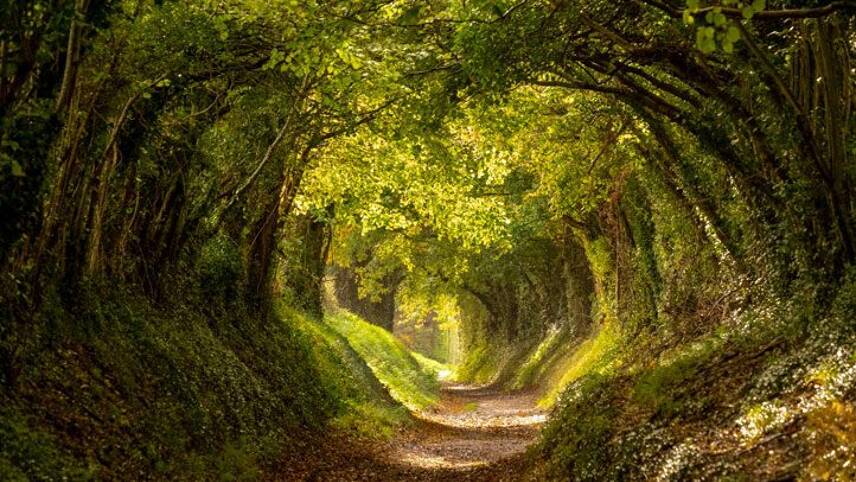Register for free and continue reading
Join our growing army of changemakers and get unlimited access to our premium content

Carbon stored in deep peat soils such as those in fens and raised bogs are up to eight times greater than the amount stored by an equivalent area of tropical rainforest
That is the key finding from new research from Natural England, which has outlined how different UK habitats can respond to the climate crisis by taking carbon out of the atmosphere.
According to the research, the UK’s peatlands and native woodlands have the greatest capacity to store carbon and lead the fight in responding to the climate crisis.
New native woodlands, for example, can improve biodiversity while sequestering carbon, while a hectare of native woodland can capture carbon equivalent to 13 flights between London and Rome each year.
The report also notes that peatlands are the largest carbon stores in the UK. When healthy, peatlands can soak up carbon “indefinitely”, Natural England notes, with carbon stored in deep peat soils such as those in fens and raised bogs up to eight times greater than the amount stored by an equivalent area of tropical rainforest.
Natural England’s chair Tony Juniper said: “By combining different policies and strategies on land and at sea, then major climate-related benefits can be achieved. Woodland creation incentives, peatland recovery, action on farms, re-naturalisation of the coast and landscape-scale nature recovery projects can all contribute.
“The climate change and nature emergencies are two sides of the same coin and with this kind of information the UK can lead in showing how we can go low carbon and high Nature at the same time.”
Paradise lost
According to the research, saltmarshes also act as highly effective carbon stores while creating the added benefit of helping coasts adapt to climate-related risks. One hectare of saltmarsh each year buries the carbon equivalent of an average car’s annual carbon emissions. Seagrass meadows can also sequester large volumes of carbon.
According to figures from the Office for National Statistics (ONS), the UK’s marine assets, which include renewable energy production, tourism attraction, sustainable fishing and carbon sequestration, have reached a value of £211bn.
The statistics suggest that £57bn of the overall value derives from carbon sequestration delivered by marine organisms such as the aforementioned sands and muds and seagrass. This figure eclipses the value of offshore oil and gas extraction, which sat at £44bn.
In 2019, 21.8 million hectares of UK waters are protected to some degree. Over a ten-year period, the percentage of surface water bodies classed as high or good has risen from 70% to 76%.
However, seagrass, one of the best carbon sequestrators is at risk from climate change and manmade pollution. Coastal protection is largely provided by saltmarshes and seagrass beds. Yet the UK has already lost up to 92% of its seagrass in the last century and 85% of its saltmarsh.
Additionally, the report notes that protecting traditionally managed habitats such as hedgerows, hay meadows, heathlands and old orchards can also preserve existing carbon stocks to help combat the climate crisis. According to the report, many of these habitats will have taken centuries to develop and need to be protected and restored.
The UK is expected to publish more bodies of work on the value of the nation’s natural assets. Earlier this year, the landmark Dasgupta review was launched, outlining how businesses and policymakers can include and account for nature as part of economic decisions, with many claiming the findings could be as influential as the Stern review on climate change.
It is the largest and most comprehensive review of its kind, that explores the role of natural capital in delivering planetary, societal and economic prosperity. Natural capital accounting assigns a monetary value to natural resources like forests and healthy soil, allowing businesses to calculate the “true cost” of their decisions.
Nature-based solutions are also set to form key parts of negotiations at the COP26 climate summit later this year.
Responding to the report, Richard Benwell, chief executive of Wildlife and Countryside Link, said: “This fantastic research demonstrates the critical role that restoring nature has in beating climate change, but quality and variety are essential. So, Government must prioritise native, broadleaf woodland over large commercial plantations.
“It should end burning on, and extraction of, peatlands, the UK’s biggest carbon store. It should also focus new payments to farmers and other land managers on genuinely transformative actions, such as promoting agroforestry or the creation of new wildlife habitats across whole landscapes.”
The report comes just days after the Woodland Trust launched a “state of play” report, which warned that poor woodland condition, climate change, fragmentation, pests, diseases and pollution and a slow rate of new woodland creation/expansion are all major contributors that are compounding the threats facing the UK’s wildlife.
According to the report, only 7% of the UK’s native woodland is in good condition, while only 290,000 hectares of new woodland has been created over the last 20 years.
Additionally, groups of indicator species for all UK woods are in “steep decline”, the report adds. On average, the UK has witnessed a 47% decline in woodland specialist birds, 41% decline in butterflies and an 18% decline in woodland flowering plants.
Biodiversity and Business: Restoring nature through your sustainability strategy
On Wednesday 21 April, edie is hosting a one-hour webinar exploring how businesses can champion biodiversity as part of ambitious sustainability strategies.
Featuring speakers from Kering and Unilever, this webinar, hosted in association with Woodland Trust, will bring together a selection of business leaders and environmental experts to discuss how businesses can protect ecosystems, reverse nature loss and enhance biodiversity.
Click here to register for the webinar.
Matt Mace


Please login or Register to leave a comment.